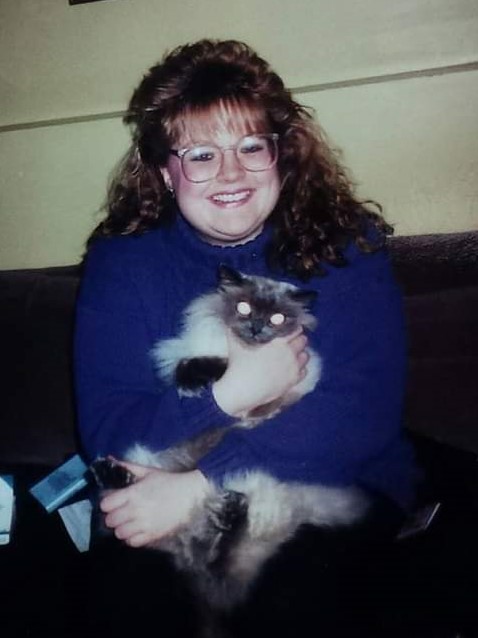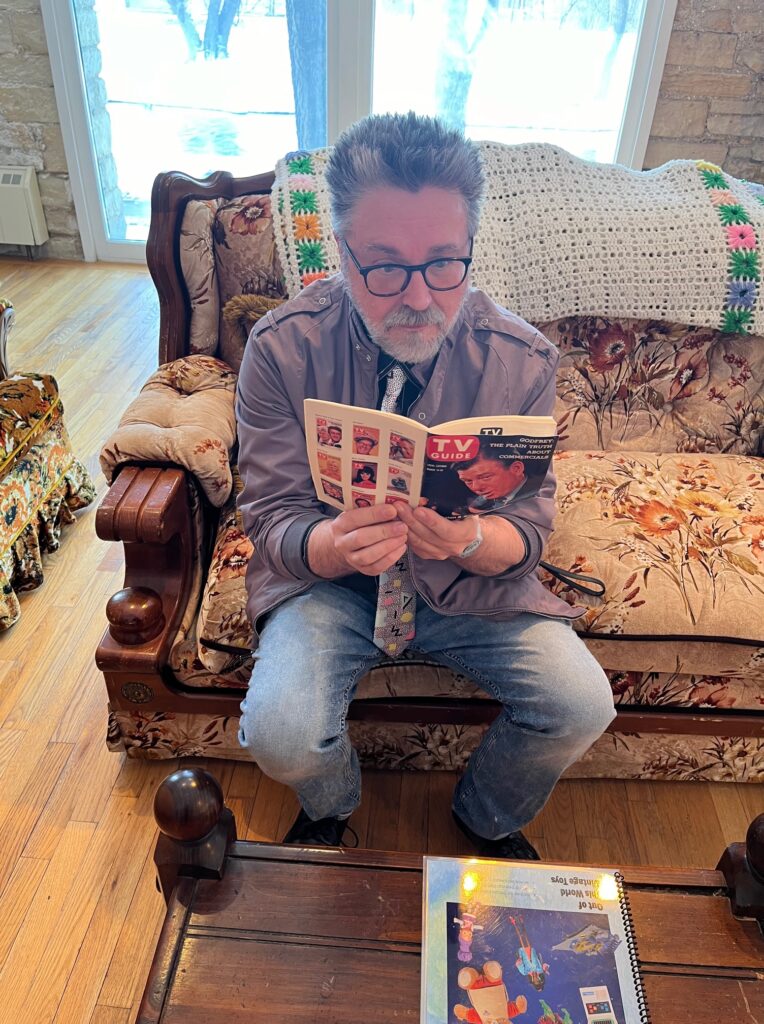
Photo By Kieran White of Manchester, England: Some Rights Reserved
The 1980’s are often referred to as the “Decade of Greed”. Do you know what people spent more money on than cars? More than what they spent on gold watches? What opulent purchase exceeded what they spent on dining, travel, clubs and even consumer debt balances? Charity.
A Need Met and Journalist Challenge

This week a friend of mine and I spearheaded a flash fundraiser for a college student studying art. The need was a powerful laptop that can run specific software. Due to various circumstances this was not in financial reach for the young person and a semester and future was on the line.
In less than 24 hours we were able to raise over $2000 so this kid could get what he needed to continue a path as he struggles to rise above poverty and achieve dreams with talent and hard work. All he needed was a little boost. He got it!
As the fundraiser gained momentum and we knew it was going to succeed, I assumed something like this would have never happened in the “decade of greed”. Boomers and yuppies and suburbanites helping others? Nah! I set out to write a hit piece on my favorite decade. I found out my assumptions were wrong.
A Decade of Generosity
According to a 1992 National Review Article by Richard McKenzie:
“In the 25-year period prior to the “Decade of Greed,” total charitable giving, in real terms, more than doubled, increasing from $34.5 billion in 1955 to $77.5 billion in 1980–or at a compounded annual growth rate of 3.3 per cent. Between 1980 and 1989, total giving in real dollars expanded by 56 per cent to $121 billion, or by a compound growth rate of 5.1 per cent. The annual rate of growth in total giving in the 1980s was nearly 55 per cent higher than in the previous 25 years.”
Broken down to per capita giving, in 1987 we were at $486 per person in the U.S. That would be over $1,300 in purchasing power today. But what about today? In 2023 we were at $481 per person. In 1987, that would have been $169 per capita.
Our current decade started with a rise of luxury goods purchases of $281 billion, up from $247 billion the prior year. Charitable giving? In 2020 and 2021 we were starting to get more generous with an increase of over 3%, but in 2022 we decreased by over 10% and continued that downward trend in 2023.
Green Peace Stranger at the Door
One night in 1986 I was sitting in my grandparents’ living room doing homework. There was a knock at the door. A young man in his 20’s with long red hair, scraggly beard, headband, and torn jeans was at the door. He had credentials and a clipboard and introduced himself as a representative from Green Peace.
My grandmother let him in and my grandfather made a pot of coffee as the man sat down in our living room. They would spend the next hour and a half having a conversation. He told them about what Green Peace did and what was at stake. They asked him questions about the threats to the oceans and environment and what is and is not possible.
At the end of the conversation my grandparents had a hushed conversation with the checkbook open. They agreed on an amount and gave him a check and collected their receipt. I do not know what the amount of the check was, but as he wrote the receipt I could see emotions on his face and he expressed genuine gratitude for the time, the coffee, and their generosity. As he got set to leave my grandfather gave him a firm handshake and thanked him for what he and his group are doing for a better world. My grandmother told him which neighbors would likely give and which ones were a waste of his time.
What We Have Now
Today we have information at our fingertips. Many of you are reading this column from a supercomputer that fits in your pocket. No one has to come to your door and with a few clicks you can instantaneously help others. But it seems while we are adding to cart, we are not adding to the social equity at the same rate as people once did.
Why?
Why was the decade of my teens so generous? I am not an economist. Even the author of the National Review article did not know, but hoped that someone would do a deeper dive one day. Challenge accepted. I will be working on an investigative report on the matter.
In the meantime, here are some personal hypothesis.
Wall Street! There were more tax incentives to give to charities in the 80’s. When some of those incentives were removed between 1988 and 1989, corporate giving dropped. There was also a PR factor. If you were a larger than life personality of wealth, to be seen as a philanthropist was a badge of honor. For some, that badge of honor was, and still is, a defense when facing accusations of fiscal impropriety.
Main Street! The 1970’s was a struggle for most middle class people. Record high inflation at the time made the dollar worth less. As the 1980s saw an increase in opportunity people may have remembered what it was to struggle and wanted to help others. It was not just opulence on Wall Street. The current credit rating system did not exist yet. Affordable housing was easier to obtain. A shoe salesman in a shopping mall could afford a house in the burbs. College did not require six figure loans with terms Vito Corleone would not be comfortable offering to people.
When people have more, there is less need. And the need that does exist, people want to give. But I also think there is a cultural factor.
The Crassness of today’s “Compassionate”
In a previous article in Gen X Watch, “Who Are You? What is Gen X Watch?” I wrote about the beauty and the beast of nostalgia. “Nostalgia is comfort. But it also has the danger of being idealized and becomes a mask for who we really are and what we really experienced. ” I want to be very careful not to idealize the 80’s, but there is something I see today that I did not see then at the level of toxicity. Self proclaimed progressive minded people who poor shame and punt needs to others.
In the flash fundraiser for the young college student and the ongoing GoFundMe for a widower and his child there is a disgusting backlash fueled by keyboard courage. Because of my own social bias I would expect it from people on the other side of the social and political fence I am on, but I am seeing the crassness from my tribe.
There are people who treat those in need as if they are stupid. In the last decade every time I ask for help for someone in need, a cast of characters send links to things they just googled for 2 minutes. The arrogant assumption here is that people in need are too ignorant to try to resolve their own problems.
The punting is fascinating as well. If it is a grass roots social media campaign people say it should be on a GoFundMe. If it is on a GoFundMe, these people should be using government aid and not be asking for handouts. They are allegedly too lazy to seek out the avenues of aid out there.
Then there is the shaming. Like asking a rape victim what they were wearing when they are sexually assaulted, others pontificate on what these people did wrong to end up the circumstance they are in. They get offended that their social media even has a request for help. The sick part is that the people in need can read what these people are saying.
I cannot help everyone in need. If I am being honest, there are some charities or needs that I do not wish to support for various reasons. That is my prerogative and fiscal reality. It is everyone’s. But kindness and decency is something we all should aspire to.
When I was a teenager in the 80’s, I did not see this manner of cruel response from people to those in need. Oh, it existed. It has always existed. But today, it seems more prevalent to be cruel. It is a bi-partisan trait.
But these marginalized people that you spit on as they try to change their worlds are immune to your consultations. They’re quite aware of what they’re going through.
Want to Help Like it’s 1987?
I have information below about a family in need. Also, I need your support in this work. Keep reading and be the difference.
A Small Difference You Can Make Right Now That Will Change Lives

Erika died on Christmas leaving behind a family that has immediate needs.
Click here to read the story of how Erika saved my life when we were teenagers.
Support Gen X Watch!

There are three ways you can do this:
1. Share this story with a friend and leave a comment.

2. Tip me! I do not have a contract with anyone in this work and for it to continue I need support.
3. Become a Members Only Patreon! In the Patreon I will have unfiltered rants, exclusive content, free PDF copies of the upcoming quarterly magazine, and more.
Thank you for your support and taking the time to read this.
Stay Totally Awesome! Stay true to you.
Leave a Reply